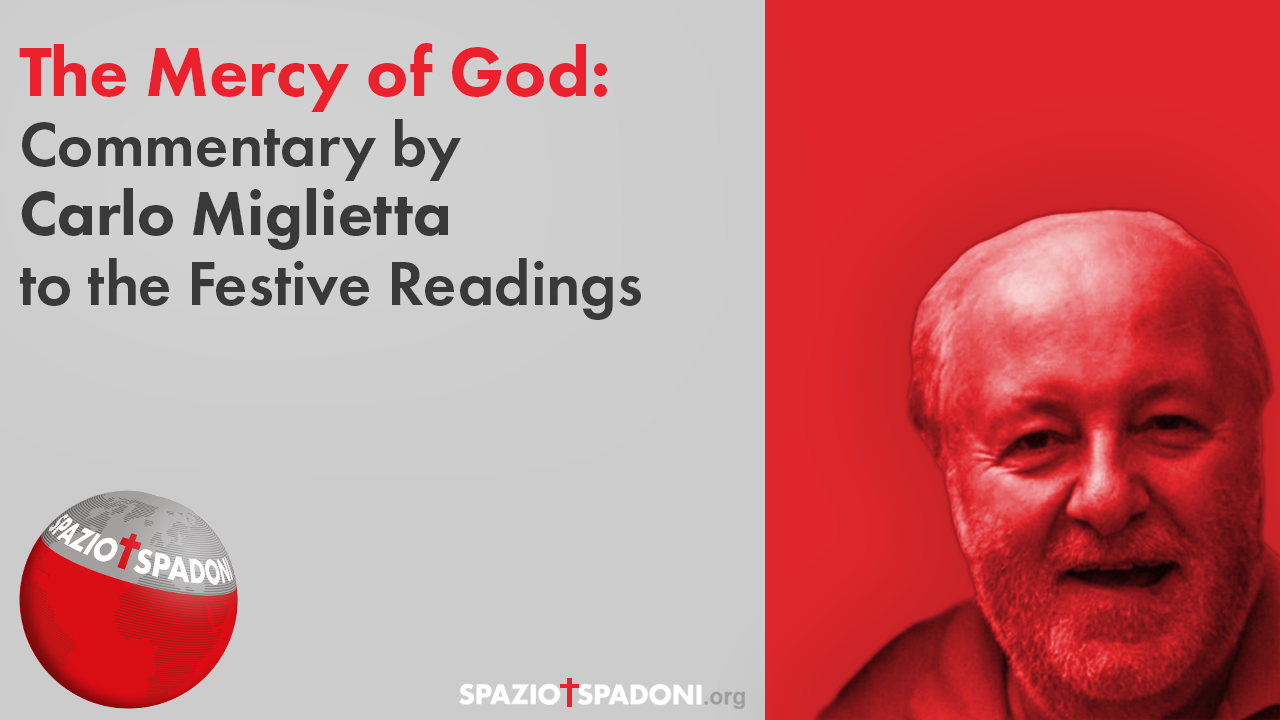
VI Sunday Of Easter B – The Commandment Of Love
Readings: Acts 10:25-26,34-35,44-48; 1 John 4:7-10; John 15:9-17
In today’s liturgy, we are at the climax of God’s revelation, “God is love!” (1 John 4:8). “If nothing else in praise of love had been written … in the rest of Scripture, and we had heard from the mouth of the Spirit of God only this assertion, we should look no further” (St. Augustine). “Love” is the New Testament name for God: such love is the source of all love (1 Jn. 4:7); it enables us to know God (v. 7); it is revealed in the gift of the Son to the world (v. 9); it does not spare itself, going so far as to give us the Only Begotten, who dies for us (vv. 9-10); it is gratuitous, because it is God who loves us first (v. 10); it is liberating, because its purpose is “that we might have life” (v. 9), and the “atonement for our sins” (v. 10). God is Love, that is, communion, dialogue, communication, gift: he in himself is community of love (the Trinity), overflowing outwardly only love.
The contemplation of this mystery on the one hand removes from us any distressing vision of an authoritarian and stern God, filling us with joy and serenity; on the other hand it profoundly affects our lives. For “his love is perfect in us … if we love one another” (1 John 4:12). The great rabbinic tradition, in the welter of prescriptions and decrees of Judaism, searched for what was “the first” (Mt 22:34-40), “the greatest” (Mk 12:28-31) commandment, the one that could summarize all the Law and the Prophets (Mt 22:40). The Talmud said that Moses came and was given 613 commandments, 365 negative (the number of days in the year) and 248 positive (the number of the members of the human body); David reduced them to 11 (Psalm 15), Isaiah to 6 (Is 33:15-16), Micah to 3 (Mi 6:8), again Isaiah summed them up to 2 (Is 56:1), finally Habakkuk to one (Hab 2:4). Jesus taught that “the greatest and first of the commandments” was, “Thou shalt love the Lord thy God,” but that the second was “similar to the first: thou shalt love thy neighbor as thyself” (Mt 22:37-38); indeed, in Mark it says, “There is no other commandment (ed. note: singular) more important than these” (Mk 12:31), and Luke presents them as one commandment (Lk 10:27).
Jesus in John proclaims “a new commandment: as I have loved you, so love one another” (Jn 13:34): and in today’s Gospel he speaks of loving one another as “his commandment” (Jn 15:12). It is a “new” commandment (“kainòs”) not in a chronological sense (the text would have used “nèos”), but in a qualitative sense: it is an unexpected surpassing of every other previous conception: in fact, the verb “agapào” is used, indicating a purely oblative love, which does not expect reciprocation; we are told to love one another “as” he has loved us, using an adverb, “kathòs,” which indicates not only the comparison, but also the foundation, the “matter” of which this love must be made: we will love one another only if we are rooted in God, filled with him, the unique source of all love.
The Church of Christ must be the place of love: Ignatius of Antioch states that the name of the Church is agape. It is called to witness to the world to the agape dimension of God. That is why it is essential that it be the place of “philadelphianship,” that is, of love for the brethren: believers are those who con-suffer (1 Cor. 12:26), con-joy (1 Cor. 12:26; Phil. 12:17), con-live and co-die (2 Cor. 7:3), col-labor (Phil. 1:27; 4:3), con-rest (Rom. 15:32). The Church is the place of reciprocity: “one another” (Jn 14:34-35; 15:12.17). Agape is the ultimate criterion of ecclesiality: love is the only unambiguous sign of belonging to the Lord (Jn 13:35; 15:10.12; 1 Jn 4:12).
